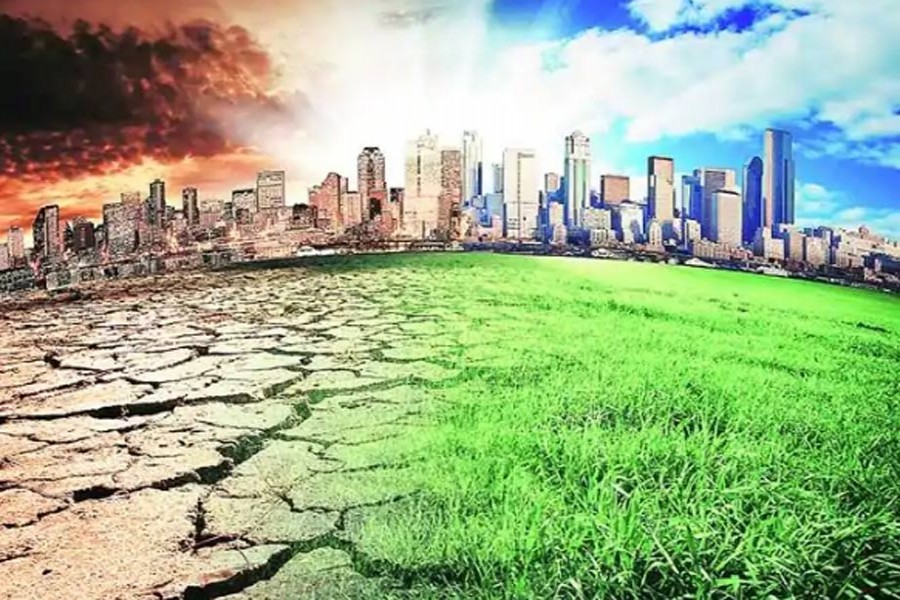
Published :
Updated :

The loss of 8,000 hectare farmland in this country each year, as revealed in a seminar in the capital, is a cause for concern. Its implications are two-fold: First, the already adverse man-land ratio in the populous country is likely to be even more critical; and secondly, we can ill-afford any reduction in the availability of agricultural land. An apprehension was expressed at the seminar that 250 million inhabitants of this country will have no land to build their shelter on. The problem is expected to further exacerbate with the rise in temperature. If the current rate of temperature rise continues, there is every possibility that the global climate will be warm enough to melt the arctic glaciers more than it is doing at present. When the temperature will rise by another 2.0 degree Celsius, the sea level will also rise by another five to six metres leading to engulfment of 17-18 per cent of Bangladesh territory in the coastal region. The cut-off point is approximately 2050 and the calamity may take its toll over the next 50 years. In the intervening years though, experts see a prospect for developing soil capital in the newly accreted lands, inland as well as offshore, making them fit for human habitation and gainful economic pursuits.
Bangladesh has been doing well on many fronts. Perhaps more concentration on economic gains has made the policymakers here lower their guard over the proliferating population status. Family planning once vigorously pursued to tackle the burgeoning population with commendable success has stagnated. It needs to be reprioritised with door-to-door motivational campaign alongside providing family planning services across the board.
The fact that Bangladesh has achieved a quiet revolution in agriculture has to some extent dispensed with the compulsion of containing population size. Now people in this country rarely face food scarcity but if the population grows double or triple in the future and the crop land gets reduced, it will be impossible to have land both for meeting the need for food and housing. That education and urbanisation combine together to limit the family size should not be lost on policymakers.
In the global perspective, the value of advocacy for limiting release of carbon dioxide into the atmosphere should not be undermined. The Climate Agreement in Paris has set up benchmark of temperature - one that should not cross 2.0 degrees above the pre-industrial level. Climatologists, however, warn that the level agreed upon is not enough to arrest natural disasters. Already, the planet has become hotter than was anticipated and wide swathes all over it are experiencing unlikely climatic convulsions. Even the richest and developed nations are not spared. It is time to drastically reduce use of fossil fuel and go for green energy to arrest rising temperature and save the world. Bangladesh can well survive if the global temperature can be lowered to the pre-industrial level.


 For all latest news, follow The Financial Express Google News channel.
For all latest news, follow The Financial Express Google News channel.